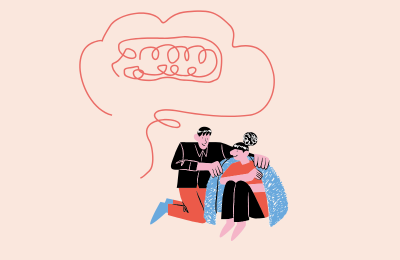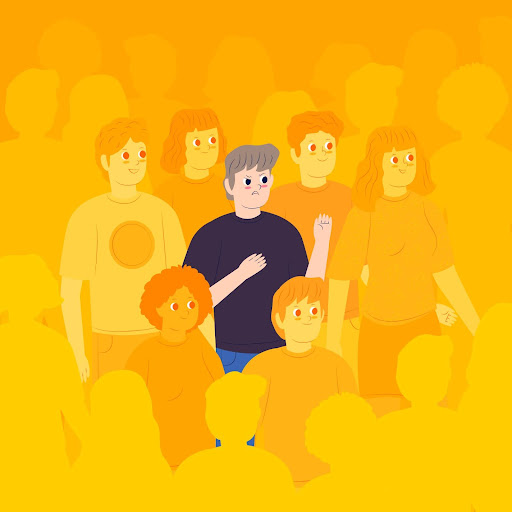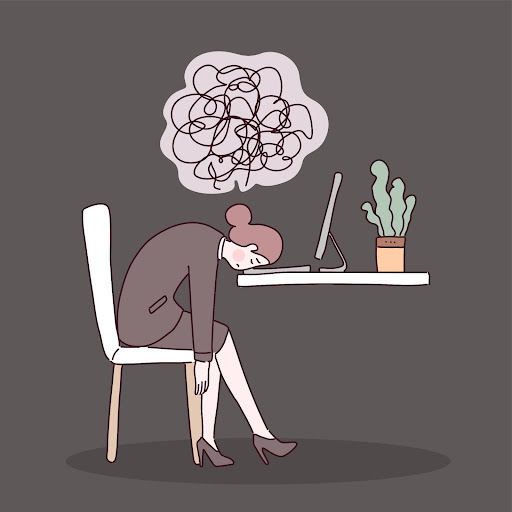
When people think about depression, they often picture the classic symptoms: persistent sadness, fatigue, or loss of interest in once-loved activities. But there are subtler signs that can wander in and out of life, brushing past unnoticed, like whispers. These lesser-known symptoms of depression are often dismissed as mere quirks or phases—but they are important signals that mental health support may be needed.
One of the more complex experiences of depression is the overwhelming craving for connection. It’s like standing outside a window, watching friends and family enjoy each other’s company while feeling invisible and disconnected. During these times, the desire to reach out can feel both comforting and terrifying.
Underlying this craving is often a paralyzing fear: the fear of being judged, dismissed, or labeled as “needy.” Thoughts like, “What if they don’t understand?” or “What if I’m a burden?” can prevent people from seeking connection, leading to isolation that compounds loneliness and despair.
Isolation doesn’t just leave individuals feeling alone; it creates a ripple effect that erodes self-confidence and self-worth. Simple daily activities—scrolling through social media, seeing the vibrant lives of others—can intensify the sense of being trapped behind an invisible barrier. Depression acts like a blurred filter over life, making joy seem unattainable and pushing people further into solitude.

Even hobbies and activities that once sparked joy can feel like burdens. A person who once loved painting may find picking up a brush unappealing or even exhausting. Books, musical instruments, or creative outlets become reminders of a self that feels unreachable.
Depression can also manifest as profound exhaustion—beyond normal tiredness. Everyday tasks like getting out of bed, brushing teeth, or preparing meals can feel very challenging. Emotional numbness may also appear, creating a sense of floating through life as a spectator rather than an active participant. This lack of emotional highs and lows can confuse both the individual and those around them.
Changes in social behavior often accompany depression. People may withdraw from conversations, offering brief replies instead of engaging deeply. The fear that others won’t understand, or that sharing struggles is a burden, can create an echo chamber of negative thoughts that spiral if left unaddressed.
These symptoms—though sometimes attributed to stress, fatigue, or a temporary “bad day”—can mask deeper emotional challenges. Ignoring them does not make them disappear; it allows depression to fester and grow.

Recognizing these signs is the first step toward recovery. Reaching out for mental health support in India can provide relief and help individuals regain a sense of control. Talking to someone trusted—a friend, family member, or mental health therapist—can be the first step toward healing. Therapy offers a safe space to articulate emotions without judgment.
It’s crucial to develop healthy coping mechanisms. Find small things that bring you joy; they don’t have to be grand gestures. Sometimes, simple pleasures—like a warm bath, a walk in nature, or immersing yourself in a good book—can be lifelines in moments of darkness.
Professional support is especially important when symptoms become overwhelming. Short-term counselling and long-term therapy can provide coping strategies, emotional support, and a structured path to recovery. Exploring different types of therapy for mental health, such as Cognitive Behavioral Therapy (CBT), psychodynamic therapy, or Eye Movement Desensitization and Reprocessing (EMDR), allows individuals to find approaches that suit their unique needs.
For immediate support in India, several 24/7 confidential helplines are available:
The benefits of mental health counselling extend beyond crisis management. Counseling helps stabilize emotions, regain perspective, and build resilience, while therapy fosters deeper self-understanding and long-term emotional growth.
Every individual deserves help and connection. Recognizing and addressing these depression symptoms is a crucial step. Healing may be gradual, but with professional guidance, support, and patience, individuals can navigate the journey toward emotional well-being.
Find a Mental Health Professional: Explore Live Love Laugh’s directory of credible mental health therapists to access professional support and guidance.
Disclaimer: The Live Love Laugh Foundation serves as a platform to facilitate access to mental health professionals. We do not employ, engage, or endorse any therapists listed, nor do we assume responsibility for the services provided. This listing should not be represented as an employment or affiliation with the Foundation.
1. How do I know if what I’m feeling is depression or just stress?
Stress usually comes and goes with specific situations, while depression is more persistent and affects multiple areas of life—work, relationships, and hobbies. For example, someone may feel exhausted and irritable after a tight deadline (stress), but if this exhaustion continues for weeks, hobbies feel like a burden, and social withdrawal occurs, it may be depression. A helpful step is to track your mood for two weeks. Note energy levels, interest in activities, and emotional changes. If symptoms are consistent and intense, consider reaching out to a mental health therapist or professional.
2. I feel lonely but scared to reach out. What can I do?
Start small: text one friend or family member with a simple message like, “I’m feeling low today, can we chat?” You don’t have to explain everything at once. Journaling your feelings before reaching out can make expressing them easier. Even a 5-minute conversation can help reduce feelings of isolation and remind you that connection is possible.
3. My loved one seems depressed. How can I support them without overstepping?
Empathy and patience are key. Instead of giving advice immediately, you can say: “I notice you’ve been quieter than usual. I’m here if you want to talk.” Small gestures—checking in regularly, sharing a meal, or going for a walk together—show support. Encourage them to seek mental health support in India if symptoms persist.
4. How can I start therapy if I’ve never done it before?
Starting therapy can feel intimidating, but it doesn’t have to be. Here’s a step-by-step approach:
5. What are some coping strategies I can use while waiting for professional support?
6. Can depression go away on its own, or do I always need therapy?
Mild episodes may improve with lifestyle adjustments, support from loved ones, and healthy routines. However, persistent depression can only be addressed through therapy and professional guidance. Seeking therapy doesn’t mean you’re weak—it means you’re taking a proactive step toward healing.
7. How do I help myself feel connected again?
Start with small, safe interactions. For example, join an online hobby group, reach out to a close friend for a short call, or volunteer for a cause you care about. Consistent, small steps gradually rebuild your sense of connection. Tracking improvements, even minor ones, helps maintain motivation.